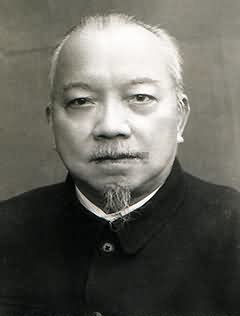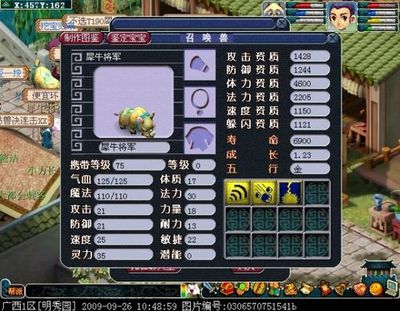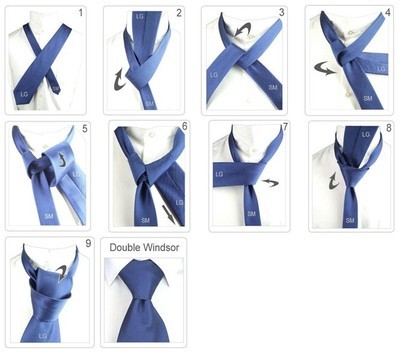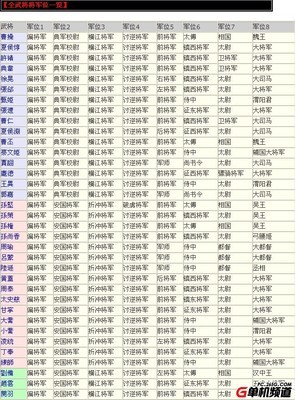奈温将军小传
General NeWin----Personality Profile
General NeWin, whose real name was Shu Maung or "Apple of my Eye", was bornon 24 May 1911 to a middle class family. His father was a civilservant. He studied medicine at the University College in Rangoon(now Yangon) but decided not to continue his studies after failinghis biology exam in 1931. He joined the DobamaAsiayone (Our Burma Association---我缅人协会) in the mid-1930s.This marked his first involvement in theanti-colonial movement. It also marked hisacquaintance with Aung San, the father of Aung San Suu Kyi.Both Aung San and Ne Win were to play crucialroles in the country's struggle for independence.
奈温将军,真名舒猛,或者“我眼中的苹果”,1911年5月24日诞生于中产阶级家庭。父亲是公务员。奈温曾在仰光大学学习医学,1931年未能通过生物学考试,决定不再继续学业。1930年代中期,他参加了“我缅人协会”。这标志着他首次卷入反殖民运动,也标志着他与昂山(也就是昂山素季的父亲)相识。昂山和奈温都在缅甸独立的斗争中扮演了重要角色。
The outbreakof World War II in 1939 coincided with mounting enthusiasm forrevolution in Myanmar(即Burma). Some of theBurmese nationalists sought Japanese military aid in theiranti-British struggle. Aung San and Shu MaungSan(即奈温) were among a group of thirty, known as the "ThirtyComrades" who left for Japanese-occupied Hainan island to undergosecret military training. On 26 Dec 41, theBurmese Independence Army (BIA) was inaugurated under theleadership of Aung San who became its Commander.On the same day, Shu Maung changed his name to NeWin, which means "Brilliant as the Sun"(像太阳一样光芒万丈). In the same month, the Japanesebombed Rangoon and Burma fell under Japanese occupation from 1942to 1945. The nationalists at first supported the Japanese,with Aung San being made Minister of War and NeWin becoming the Commander-in-Chief of the Army,which was renamed as the Burmese National Army(BNA--- 缅甸国民军). However, the BNA switched sideswhen Japanese defeat in World War II became imminent.
1939年第二次世界大战爆发,恰逢缅甸革命热情的高峰。一些缅甸民族主义者在反英斗争中寻求日本人的援助。昂山和舒猛都是三十人集团的成员,即我们所知的“三十党人”,他们曾经前往日本占领的海南岛经受了秘密军事训练。1941年12月26日,缅甸独立军在昂山领导下举行了成立仪式,昂山就任总司令。同一天,舒猛改名为奈温,意思是“像太阳一样光芒万丈”。同月,日本轰炸仰光,1942年到1945年,缅甸陷入日本人的占领。民族主义者起初支持日本人,昂山成为战时总理,奈温则是军队统帅,这个时候军队已经改名为“缅甸国民军”。然而,当日本面临二战中迫在眉睫的失败时,缅甸国民军彻底改变了立场。

After the war,Aung San became the country's shining hope and national hero. Heformed the Anti-Fascist People's Freedom League (AFPFL) and led theparty to an overwhelming victory in the April 1947 elections.Unfortunately, hopes that he would continue to lead the countryafter independence were dashed when he was assassinated on 19 July1947. His departure paved the way for Ne Win toemerge as the key post-independence figure.
战后,昂山成为举国瞩目的希望和民族英雄。他组建了 “反法西斯人民自由同盟”,1947年4月,“反法西斯人民自由同盟”在他的领导下在大选中大获全胜。不幸的是,1947年7月19日昂山被暗杀,由他来继续领导独立后的缅甸的希望随之破灭。
Burma gainedindependence from the British on 4 Jan 1948 but faced mountingdomestic problems. In the decade afterindependence, Prime Minister U Nu had to deal with revolts by theindigenous minority tribes and communist insurgents. In thisclimate of unrest and instability, Ne Win was able to strengthenhis own position and eventually became the Army Chief of Staff andthe Armed Forces Supreme Commander in 1949. UnderNe Win's command, the Army was able to contain the revolts and thecommunists. Ne Win's political power increasedfurther in the late 1950s when the AFPFL (反法西斯人民自由同盟)leadership fell into disarray. Ne Win was theninvited to form a caretaker military government, taking over fromPrime Minister U Nu. In 1962, following rebellions by the Shan andKachin tribes, the Burmese military under Ne Win took over power ina bloodless coup d'etat.
1948年1月4日,缅甸从英国手中获得了独立,但是面临着严峻的国内问题。在独立后的十年,吴努总理不得不应付少数民族和共产党的叛乱。在这种动荡不安的背景下,奈温得以加强自己的地位,并且最终在1949年成为陆军总参谋长和武装部队最高指挥。在奈温的指挥下,军队得以控制叛乱和共产主义者。1950年代后期,随着“反法西斯人民自由同盟”领导层陷入混乱,奈温的政治权力得到进一步的提升。1958年,奈温受邀组建军人看守政府来接替吴努总理。1962年,掸族和克钦族叛乱,缅甸军队在奈温的领导下以不流血的政变夺取了权力。
The newleaders set about transforming the country to a socialist state,introducing the Burmese Way to Socialism and building anauthoritarian regime. They nationalised all private enterprises andexpelled the Chinese and Indian entrepreneurs and confiscated theirassets. All political parties were banned and independentnewspapers abolished. Executive, legislative and judicial powerswere now monopolised by the Revolutionary Council and the newlyformed Burmese Socialist Programme Party (BSPP). The militaryretained absolute control until Mar 1974 when a new constitutiontransferred power from the Revolutionary Council to the People'sAssembly. In truth, power remained with the old guards from theBSPP and Ne Win who became President of the now renamed SocialistRepublic of Burma.
新的领导人开始把国家转向社会主义,实行缅甸式的社会主义道路,建设极权主义政权。他们把所有的私有企业国有化,驱逐中国和印度企业家,没收他们的资产。禁止所有政党,废除独立新闻组织。行政、立法、司法权力现在都被“革命委员会” 和新建立的 “缅甸社会主义纲领党” 垄断。军方一直保留着绝对控制权,直到1974年5月,一项新宪法把权力从“革命委员会” 转交到人民会议手中。实际上,权力仍然掌握在缅甸社会主义纲领党的老领导人和奈温手中,这时,奈温是缅甸社会主义共和国的总统。
By 1974, after12 years of military rule, it was apparent that Ne Win's economicpolicy had sent the economy into a devastating decline. In June ofthat year, riots broke out over food shortages and rising prices,forcing the government to declare martial law to restore order.Throughout the late 1970s and 1980s, there was general discontentwith the disintegrating state of the economy.
到1974年,经过12年的军政府统治,奈温的经济政策已经非常明显地使缅甸经济发展陷入灾难性的下滑之中。那年6月,食物短缺和价格上涨导致了暴乱爆发,迫使政府颁布戒严令来恢复秩序。整个1970年代后期和1980年代,对经济的分崩离析存在普遍不满。
In 1987, NeWin admitted in a television speech that mistakes had been made inhis 25 years in power and that constitutional changes must be made"in order to keep abreast with the times". In early 1988, years offrust ration with the disintegrating economy finally came to a headwhen massive student demonstrations and riots occurred in manyparts of Burma. On 23 Jul 1988 Ne Win announced his resignation asBSPP Chairman. In 1989, the country's name was changed to Union ofMyanmar and its capital Rangoon was renamed Yangon.
1987年,奈温在一次电视讲话中承认自己25年的统治中犯了错误,“为了与时俱进”必须做出宪政改革。1988年早期,对经济分崩离析的多年积累的挫败感终于得到了发泄,缅甸许多地方发生了学生大规模示威和暴乱。1988年7月23日,奈温辞去“缅甸社会主义纲领党” 主席一职。1989年,国名改为缅甸 (Myanmar)联邦,首都(由Rangoon)改为仰光(Yangon)。
Ne Win hadremained in power for 26 years from the 1962 coup to hisresignation in 1988. When he came into power, his slogan was "Oneblood, one voice, one command", and he ruled the country with aniron-fist, exercising brutal and absolute control. He was alsoknown for employing a mixture of superstition and mysticism, whichsometimes led to bizarre policies being introduced. His belief innumerology, for example, ledhim to declare in 1987 that only currency notes in 45 and 90kyats (numbers divisible by9, his personal lucky number) were to be legal tender, instantly wiping out the savings of millions as currencies of all othervalues became worthless overnight.
Hisresignation in 1988, however, did not see him exit from thepolitical scene as he continued to exert considerable backgroundinfluence. It was only in the 1990s that his influence waned as he became older and morereclusive.
奈温从1962年政变到1988年辞职,掌权26年。他上台的时候,口号是“一种血液,一个声音,一道命令”,他以铁拳统治国家,实施残酷的绝对控制。他还以利用迷信和神秘著称,这导致他有时颁布一些怪诞的政策。比如,他信仰命理学,1987年他宣布只有45元和90元(能够被他本人的幸运数9整除的数字)是法定货币,上百万的其他币值储蓄一夜之间变得分文不值。
然而,奈温1988年辞职并不是他离开政治舞台的标志,他继续发挥巨大幕后影响。一直到1990年代,当他更老无所依的时候,他的影响才衰退下去。
In March2002, it seemed as if whatever power he had with the military juntahad vanished when his son-in-law, husband of his powerful daughterSandar Win, and his threegrandsons were arrested for treason and sentenced to death on 26 Sep 2002.When Ne Win died on 5 Dec 2002 in his sprawling lakeside villa, he was under house arrest together with hisfamily members
2002年3月,他的女婿即他重权在握的女儿SandarWin的丈夫和他的三个孙子因为叛国罪被逮捕,并在同年9月26日处以死刑,这个时候,无论奈温和他的军人集团曾经拥有多少权力,看起来都已烟消云散。2002年12月5日,奈温在自己散乱的湖边别墅去世,当时他和他的家人正被软禁。
 爱华网
爱华网


